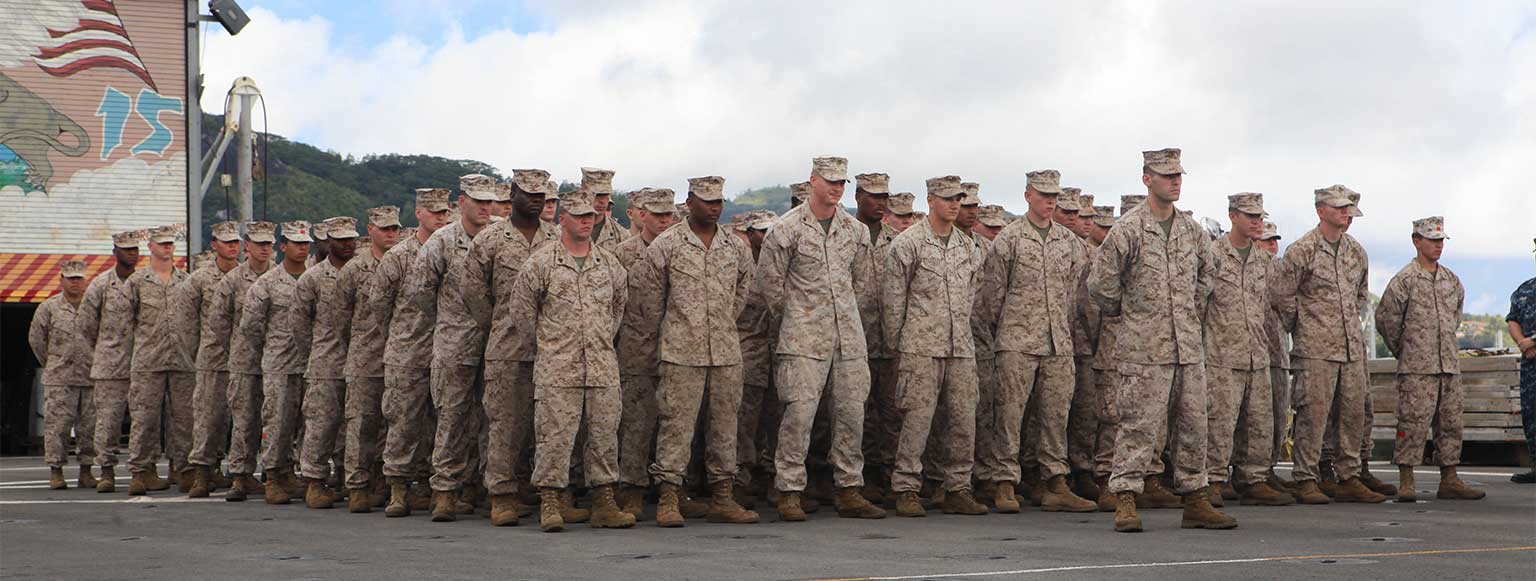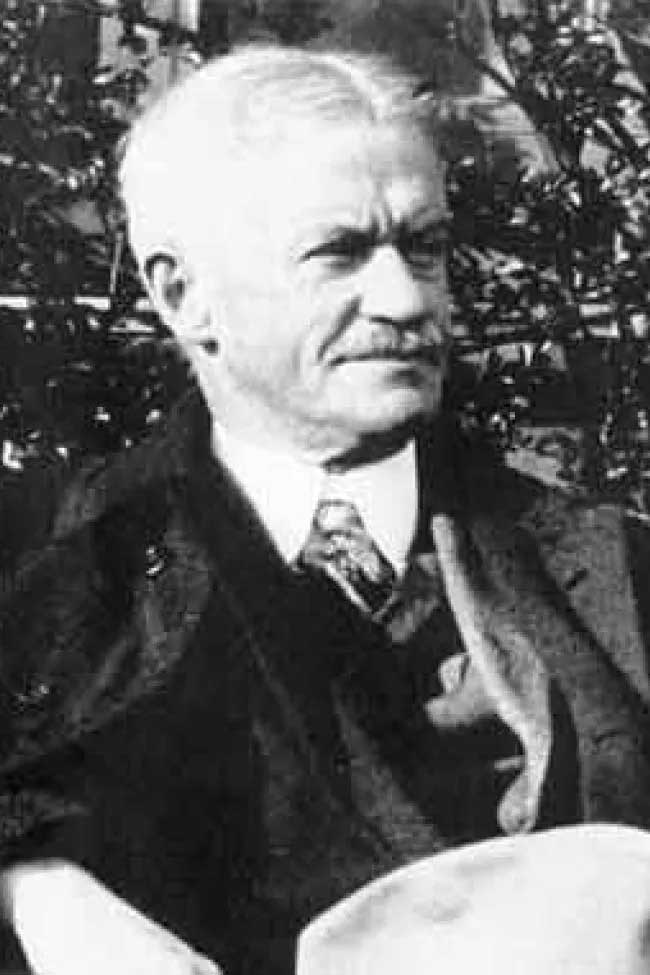Principles and Traits of Marine Corps Leadership, Part 5

In his excellent book Memoirs of a Superfluous Man, Albert Jay Nock discusses in part his impatience with what he calls “social legislation” aimed at improving society presumably by improving human beings through the force of law. In an interesting discussion of a long-time friend who had been active in the effort to compel human beings to improve, Nock reports the following: “In a conversation with me not many months ago, this friend said mournfully, ‘My experience has cured me of one thing. I am cured of believing that society can ever be improved through political action. After this, I shall cultivate my garden.’ “[i] Nock responds to his friend’s statement saying: “To my mind, those few concluding words sum up the whole social responsibility of man. The only thing that the physically-human being can do to improve society is to present society with one improved unit. In a word, ages of experience testify that the only way society can be improved is by the individualist method… that is, the method of each one doing his very best to improve one.”[ii]

Nock’s statement here captures well the Marine leadership principle of setting the example for others. Yet Nock’s statement can be understood as urging each of us to be the example. Carolina Museum of the Marine is located in Jacksonville, North Carolina, and here, in North Carolina, our state motto is Esse Quam Videri: “To be, rather than to seem.” We will consider the present principle of Marine Corps leadership from this perspective. Reading about the principle “set the example” we find that “it might be one of the most crucial (and subtle) aspects of a good leader.” We’re familiar with the observation that people can say anything, and many do, but if we want to know someone’s intent, look at what he does.
. So, leading by example is a form of communication without words, and this explains its subtlety (and suggests a difficulty presented by people among us who are insufficiently attuned to subtlety to understand this form of communication). “Leaders who lead by example usually start good habits because they serve as a quality example of how to act and respond.”
This is an interesting assertion because it identifies the importance of good habits, and implies that when people see good habits displayed by others, many want to imitate them, and develop them. In the history of moral philosophy, the concept of habit is important because habits are how we distinguish virtues from vices, and this helps us to see clearly the notion of leading by example not so much as a technique, though this is needed at times, but as a consequence of the kind of person a leader is.
A well-developed person will lead by example as a function of being a well-developed person. There are moral habits because we have the power of free choice, and there are intellectual habits because we have minds. Moral and intellectual habits work together through the virtue of prudence. A well-known study of this describes the relation of moral to intellectual virtues this way. “Good operative habits are called by Aquinas [d. 1274 A.D.] ‘virtues’ and bad operative habits ‘vices.’ But he was not content with this distinction, and he followed Aristotle in distinguishing between the moral virtues which incline a man’s sensitive appetite to act in accordance with right reason, and the intellectual virtues, which perfect a man’s rational powers.”[iii] So we see here the important distinction between moral and intellectual virtues, and then our author shows how they relate one to another. “But it is not possible to have the moral virtues without the intellectual virtue of ‘prudence’ which inclines us to choose the right means to the attainment of the objective good or to have prudence without the moral virtues. We cannot therefore dissociate altogether the moral from the intellectual virtues.”[iv]
We may think of virtues, then, as “good operative habits,” and in thinking of it this way, it is clear that there are many good operative habits. In the intellectual tradition of “virtue ethics” there are four cardinal virtues: wisdom, courage, prudence, and justice. These, however, are only the primary habits from which the others get their definitions. It is a function of justice, for example, to develop the good operative habits of honor and commitment, because these have directly to do with how we interact with others. The good operative habit of commitment, in turn, requires us to tell the truth, be honest, and keep promises. Moreover, acting according to good operative habits makes one’s life pleasurable and orderly, which are important elements of the inner peace that makes one happy. “For he [Aquinas] was convinced that we need virtuous habits on three counts,…namely that we may be able to act uniformly, readily, and pleasurably in accordance with right reason. Man perfects himself and develops towards the attainment of the objective good in and through activity; and habits are one of the most important influential factors in activity.”[v]
So, leaders who set the example for others do so most effectively when the example they set comes from within, from possession of good operative habits. We read also that such leaders inspire in others the desire to improve, to acquire the good operative habits of the leader, and in this way, the entire team may become better both at their mission, and also as individual persons, thus embracing Albert Jay Nock’s conception of an individual’s responsibility to society, which is to present it with one improved unit.
It is an easy way to introduce the leadership trait of decisiveness by saying that it fits well with the leadership principle of setting the example, but of course, all fourteen of the Marine Corps’ traits of leadership fit well with the principle of setting the example. Being decisive is different from being impulsive, even if they may look the same in action. Impulsiveness is an expression of emotion leading reason, and is therefore an expression of inner disorder. The function of emotion is to react to a situation according to a proper understanding of the circumstances, and thus emotion, in a well-ordered soul, operates under the guidance of reason. So a person in whom emotion follows reason is able to be decisive, while a person in whom reason is subordinate to emotion will be impulsive.
A fine description of this difference is found in an essay on American political tradition and the intellectual and moral requirements of a people who wish to be free. In “E Pluribus Unum: The American Consensus,” John Courtney Murray writes:
In any phase civil society demands order. In its highest phase of freedom it demands that order should not be imposed from the top down, as it were, but should spontaneously flower outward from the free obedience to the restraints and imperatives that stem from inwardly possessed moral principle. In this sense democracy is more than a political experiment; it is a spiritual and moral enterprise. And its success depends upon the virtue of the people who undertake it. Men who would be free must discipline themselves.[vi]
It is significant that Murray calls a free people a civil society in its highest phase. This way of speaking captures a debate in the West concerning the nature of persons and societies that is at least as old as Socrates. An important theme in Plato’s writings, where we learn about Socrates, is the importance of sound character development among a people if they are to have a just society. No society can be just, Plato writes, where the individuals comprising it are inwardly unjust. To be inwardly unjust is to have a disordered soul. One is inwardly unjust, for example, in whom emotion is not guided by reason, and here we might pause for a moment over the ancient idea of “practical reason.”
In its entry on Aristotle’s ethics at the website of the Stanford Encyclopedia of Philosophy, one finds the following concerning where thinking about accomplishing a goal rightly begins.
But if practical reasoning is correct only if it begins from a correct premise, what is it that insures the correctness of its starting point?
Aristotle replies: “Virtue makes the goal right, practical wisdom the things leading to it” (1144a7-8)…. Which specific project we set for ourselves is determined by our character. A good person starts from worthwhile concrete ends because his habits and emotional orientation have given him the ability to recognize that such goals are within reach, here and now. Those who are defective in character may have the rational skill needed to achieve their ends—the skill Aristotle calls cleverness—but often the ends they seek are worthless. The cause of this deficiency lies not in some impairment in their capacity to reason—for we are assuming they are normal in this respect—but in the training of their passions.[vii]
So, in this understanding of the role of reason in choosing proper goals, the point of origin is in the character of the one choosing. After a choice of goal is taken, it is a matter of applying reason to the circumstances one faces in order to achieve the goal as effectively as one can.
We may say, then, that being of good or defective character does not determine the skill with which one can think about how to accomplish goals, but it does have a significant effect on how worthy goals are chosen. The reason for this is, as Aristotle argued, that shameful actions often tempt people of defective character, and often appear to be good, whereas that which is shameful or unjust appears to someone of good character to be repellant, never to be chosen. Decisiveness as a leadership trait in the Marine Corps is rightly thought of as a quality whereby a Marine can see within a welter of changing circumstances what is to be done to achieve the mission, as Aristotle might say, here and now. This is, of course, correct, but we have attempted here to explain not so much a decision-making process, but how the quality of a leader’s character affects the goals chosen. It is what marks the important difference between being impulsive or being decisive, and thus the quality of the example a leader might set.
[i] Albert Jay Nock, Memoirs of a Superfluous Man, Harper and Brothers, New York, 1943, p. 307.
[ii] Ibid., p. 307, emphasis in the original.
[iii] F.C. Copleston, Aquinas: An Introduction to the Life and Work of the Great Medieval Thinker, Penguin Books, Hammondsworth, Middlesex, England, 1955, p. 215.
[vi] John Courtney Murray, S.J., “E Pluribus Unum: The American Consensus,” in We Hold These Truths: Catholic Reflections on the American Proposition, Sheed and Ward, New York, 1960, Pp. 36-37. [vii] The article on Aristotle’s ethics may be found here: https://plato.stanford.edu/entries/aristotle-ethics/#StarPoinForPracReas


